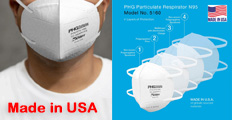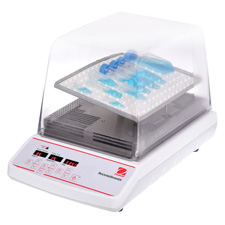



Find all of your laboratory and workplace safety supplies at Safety Emporium!
 Nystagmus |
 Glossary Index |
 Organic |
| MSDS Topics |
Free Sites | FAQ's | Regulations | Glossary | Software | Suppliers |
| Books | Forum | Poll | Fun stuff | Quiz | Store | |
| Understand your MSDS with the MS-Demystifier | Search ALL our MSDS info | |||||

Safety Emporium has all kinds of lab equipment such as this incubating rocking shakers and more.
Oliguria (also called hypouresis) is a lower than normal volume of urine (less than or equal to 0.5 ml per kg of body weight per hour for adults or children).
Anuria is the absence of urine production.
Oligoanuria is somewhere between oliguria and anuria in which less than 100 mL of urine is produced per day. This level is also considered to be anuria in clinical practice.
Oliguria is a symptom of several potentially life-threatening conditions. Some examples include:
It can also be an indication of dehydration caused by failure to drink enough fluids, something than can upset your body's electrolyte balance.
This term usually appears on Section 11 (toxicological information) of a material's Safety Data Sheet as a symptom of exposure to the material. However, oliguria has many other causes. Regardless, is can be a symptom of a much more serious condition such as renal (kidney) failure or prostrate problems, so don't just dismiss it. Watch for other symptoms such as nausea, vomiting, etc. and consult a physician if you suspect a more significant problem. Definitely consult a physician if your urine output stops entirely.
As always, read the SDS's of the chemicals that you work with so you know and understand possible symptoms of exposure. And, of course, take the proper precautions to avoid exposure in the first place. Section 8 (exposure controls/personal protection) of the SDS will contain measures you can take to protect yourself such as personal protective equipment (PPE) and/or appropriate engineering controls

Help your workers beat dehydration with heat stress prevention signs from Safety Emporium.
See also: nephrotoxin, PEL.
Additional definitions from Google and OneLook.
Entry last updated: Saturday, January 7, 2023. This page is copyright 2000-2025 by ILPI. Unauthorized duplication or posting on other web sites is expressly prohibited. Send suggestions, comments, and new entry desires (include the URL if applicable) to us by email.
Disclaimer: The information contained herein is believed to be true and accurate, however ILPI makes no guarantees concerning the veracity of any statement. Use of any information on this page is at the reader's own risk. ILPI strongly encourages the reader to consult the appropriate local, state and federal agencies concerning the matters discussed herein.